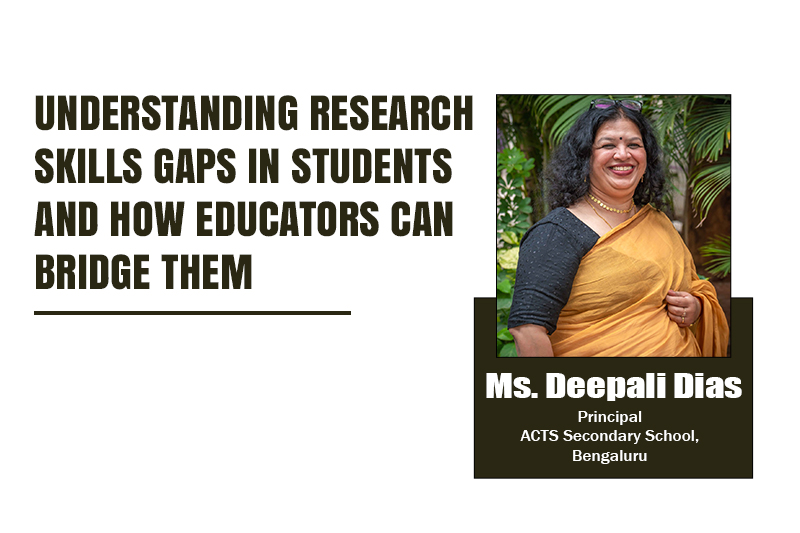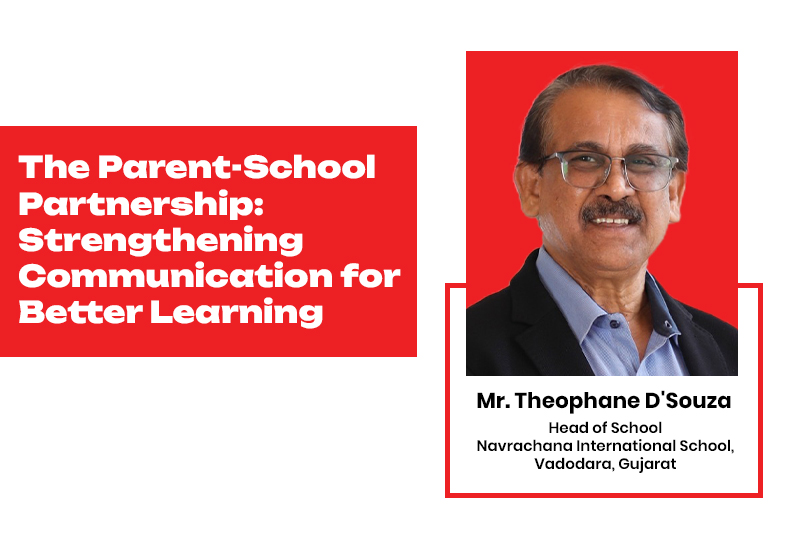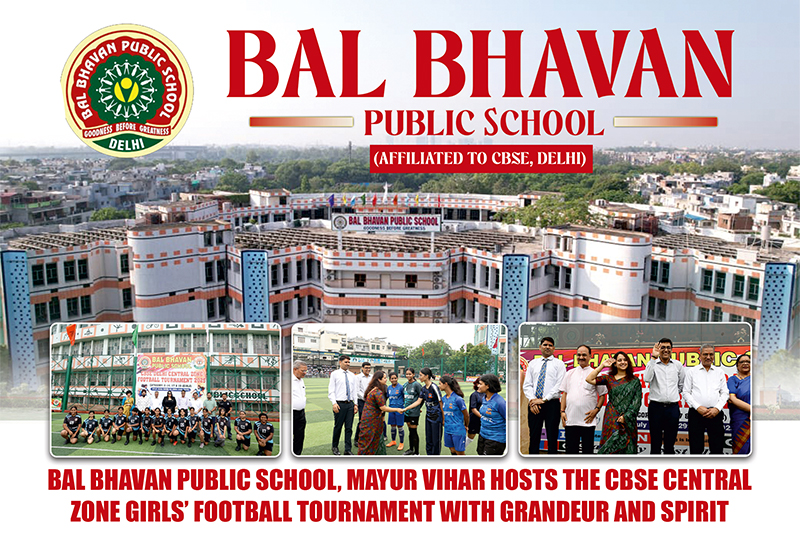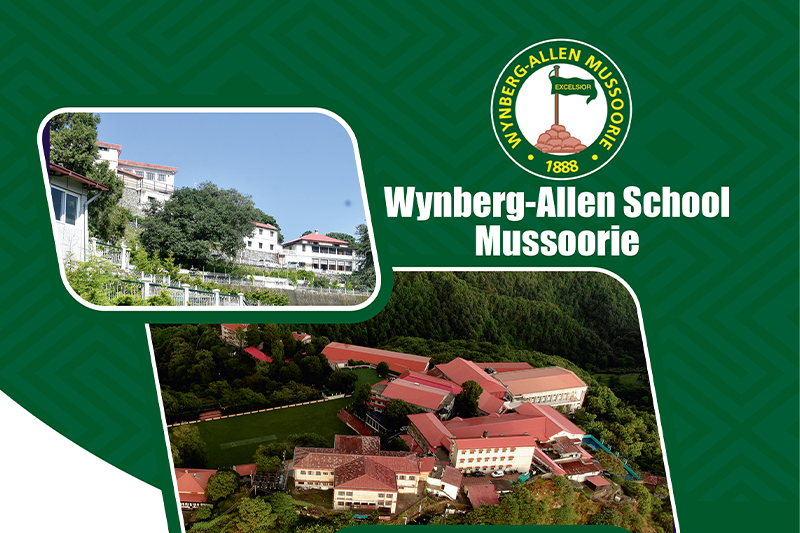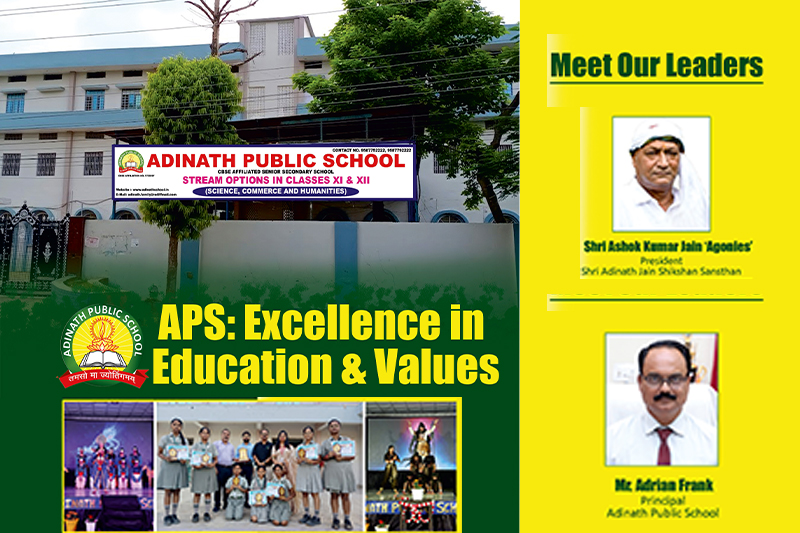Empowering Future-Ready Learners: Mrs. Achala Verma’s Vision at Birla Balika Vidyapeeth
“True education doesn’t just fill minds – it shapes character, builds resilience, and prepares hearts for the world.”
With a decade and a half of devoted service in education, Mrs. Achala Verma, Principal of Birla Balika Vidyapeeth, Pilani, is an influential school leader and an enthusiastic educator. As a National Awardee, she is renowned for her dedication to fostering a supportive school climate, values-based discipline, and meaningful learning. With an eye towards the future, she concentrates on igniting students' interest in education, giving them the freedom to choose their paths, and motivating educators to embrace creativity and teamwork. The three pillars of her educational philosophy—skill development, emotional health, and academic excellence—are equally important in preparing students for life after school.
Rooted in this conviction, Mrs. Verma fervently supports an all-encompassing teaching method that combines conceptual clarity with life skills. She sees this integration as essential to developing resilient, empowered, and future-ready students in today's rapidly changing educational environment rather than as an extra.
Classrooms in Transition: Redefining Learning Spaces
In today’s fast-changing world, the education landscape is profoundly transformed. Schools are no longer seen as mere centers for academic instruction; they are evolving into dynamic ecosystems where young minds are nurtured into competent, confident, and resilient individuals, prepared to face the complexities of modern life. The classroom of the future must be more than just four walls and a blackboard—it must be a vibrant hub where curiosity flourishes, life skills are developed, and conceptual clarity is seamlessly woven into competency-based learning.
Educators now hold the immense collective responsibility of designing learning spaces that spark imagination, encourage exploration, and inspire growth that reaches far beyond memorization. The mission is clear: to help students develop the tools they need to face challenges head-on, think critically, and evolve into empowered lifelong learners.
The Critical Role of Life Skills in Modern Education
As the demands of the 21st century grow more complex, the need for life skills in education becomes increasingly evident. Skills such as emotional intelligence, effective communication, critical thinking, decision-making, and collaborative problem-solving are no longer optional—they are essential. While traditional academic content lays the groundwork for intellectual development, the integration of life skills equips students to navigate real-world challenges with confidence and poise.
At Birla Balika Vidyapeeth, education is viewed as far more than transmitting textbook knowledge. It is about character building, emotional resilience, and personal transformation. Life skills empower students to manage their emotions constructively, resolve conflicts amicably, make thoughtful decisions, and collaborate meaningfully. In a world that prizes adaptability as much as academic excellence, these competencies form the backbone of future-ready learners.
Mrs. Verma emphasizes that these life competencies are as vital as grades in shaping a student’s journey. “We are not only preparing scholars,” she says, “we are nurturing future leaders, responsible citizens, and compassionate human beings.”
Conceptual Clarity: Strengthening the Academic Core
Parallel to life skills is conceptual clarity—a principle Mrs. Verma considers the cornerstone of meaningful education. In a world driven by information and innovation, understanding a concept at its core is far more valuable than the ability to recall facts merely.
Competency-based education, as promoted in India’s National Education Policy (NEP 2020), places this clarity at the center of academic progress. Students are expected to demonstrate what they know and how they apply it, why it matters, and how it connects to the world around them.
When learners build strong conceptual foundations, they are better equipped to think analytically, connect ideas across disciplines, and confidently engage with unfamiliar problems. Mrs. Verma notes that this approach boosts academic retention, problem-solving ability, and learner engagement.
Integrating Life Skills with Academic Learning: A Seamless Blend
One key challenge schools face is how to integrate life skills into subject learning without adding to the existing curriculum burden. Mrs. Verma offers a clear and practical perspective: the integration must be organic, intentional, and embedded in daily teaching-learning.
At Birla Balika Vidyapeeth, this integration is realized through several innovative strategies:
- Collaborative Projects that encourage leadership, negotiation, and team dynamics
- Reflective Practices, including journaling and discussions, that promote emotional awareness and introspection
- Scenario-Based Learning uses real-life situations to simulate ethical dilemmas and decision-making
- Open Forums and Debates on current events to build perspective, civic sense, and analytical thinking
- Interactive Sessions with Alumnae and Guest Experts to inspire goal-setting and career awareness
- AI and Technology Integration to sharpen digital skills alongside critical evaluation and responsible use
These strategies demonstrate how life skills and conceptual clarity can reinforce each other, allowing students to engage more deeply with content and develop transferable competencies simultaneously.
Teacher Empowerment: The Driving Force Behind Integration
Teachers are the catalysts of educational change. Mrs. Verma strongly believes that empowering students begins with empowering educators. To integrate life skills and conceptual learning effectively, teachers must be equipped with pedagogical tools, emotional intelligence, and leadership qualities.
To support this, the school invests heavily in teacher development, offering mentoring, peer-sharing opportunities, and continuous learning initiatives. Teachers become role models and facilitators by creating a collaborative and reflective teaching culture, guiding students with patience, openness, and care.
“When teachers live the values they teach,” Mrs. Verma states, “students naturally begin to reflect those same values in their own lives.”
A Vision Aligned with NEP 2020
India’s National Education Policy (NEP) 2020 marks a significant shift toward holistic, skill-based, and learner-centered education. Mrs. Verma’s vision is closely aligned with this reform agenda. She sees NEP as an opportunity to redefine school success—not just through academic results, but through every student's overall growth and readiness.
This vision is translated into action at Birla Balika Vidyapeeth through personalized mentorship, experiential learning, integrated assessments, and character-building initiatives. Students graduate not only with strong academic scores but also with the courage to lead, the empathy to serve, and the wisdom to make sound life choices.
Conclusion: Educating for Life, Not Just for Exams
In conclusion, Mrs. Achala Verma champions an education model that educates the head, heart, and hand—a system where academic understanding meets emotional intelligence and practical life skills. Integrating life skills with conceptual clarity does not require reinvention of the curriculum but a reorientation of purpose.
She articulates passionately, “Education should prepare learners for life—not just for tests. When we teach with clarity and lead with values, we raise students who are intelligent, wise, resilient, and humane.”
Through thoughtful integration, schools can become spaces where future-ready, value-driven, and empowered learners are born.
Want more thought-provoking articles like this? Check out EducationToday – where education meets innovation.


